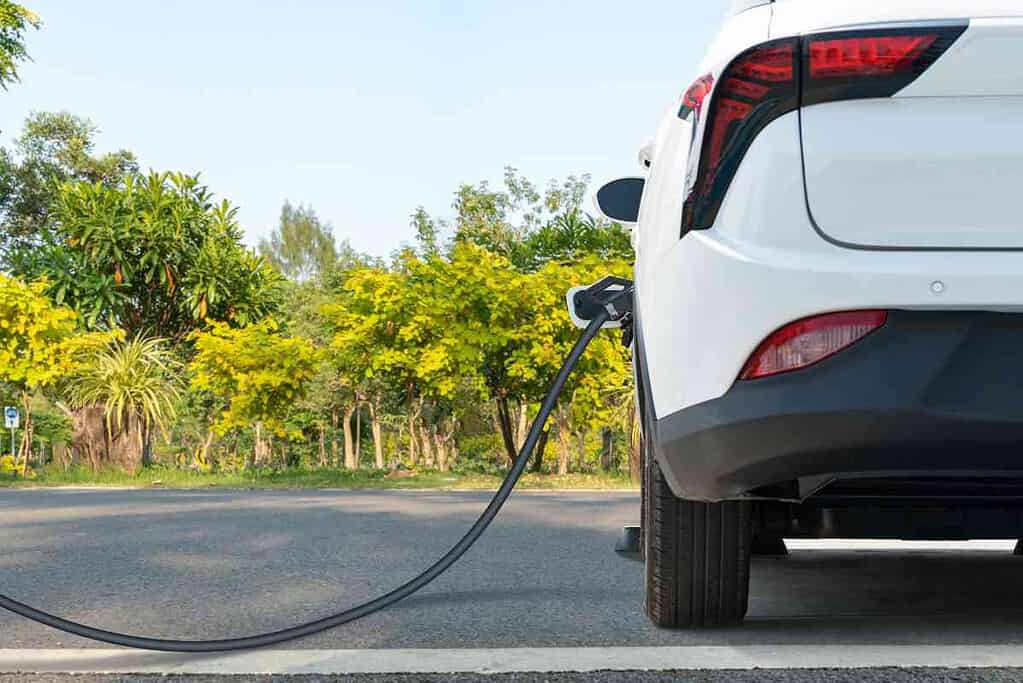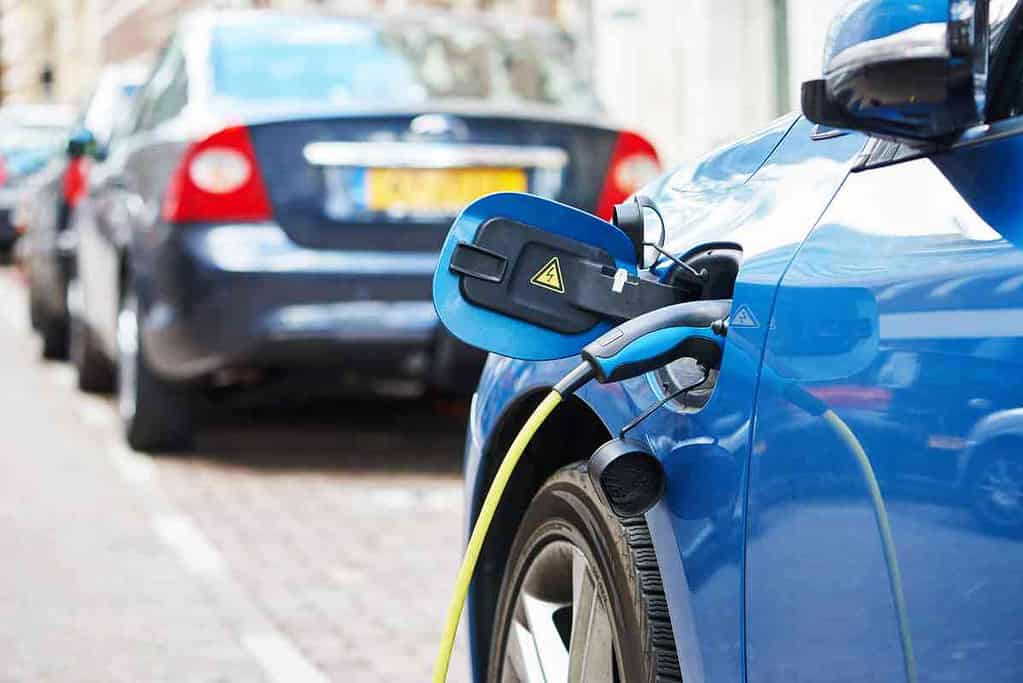Can Hybrid Cars Run Without Gas? Exploring the Possibility
Hybrid cars are becoming increasingly popular due to their fuel efficiency and eco-friendliness. However, many people still wonder if it’s possible to run a hybrid car without gasoline. The answer is not a simple yes or no, as it depends on the type of hybrid car and how it’s driven.

Can hybrid cars run without gas?
Hybrid cars integrate an electric motor with a gasoline engine. Some can operate on electricity for brief distances, but they primarily require gasoline. There are alternative fuels like hydrogen fuel cells which might power certain hybrids without gasoline, yet the prevalent design still relies on gas.
To understand if a hybrid car can run without gas, it’s important to first understand how hybrid cars work. Hybrid cars combine an electric motor with a gasoline engine to power the vehicle. The electric motor is powered by a battery that is charged by regenerative braking and the gasoline engine. When the car is driving at low speeds or idling, the electric motor powers the car, and the gasoline engine takes over at higher speeds.
While hybrid cars are designed to be fuel-efficient, they still require gasoline to operate. However, there are some hybrid cars that can run on electricity alone for short distances before switching to gasoline. Additionally, there are alternative fuel sources, such as hydrogen fuel cells, that can power hybrid cars without gasoline.
Key Takeaways
- Hybrid cars combine an electric motor with a gasoline engine to power the vehicle.
- While some hybrid cars can run on electricity alone for short distances, they still require gasoline to operate.
- Alternative fuel sources, such as hydrogen fuel cells, can power hybrid cars without gasoline.
Understanding Hybrid Cars
Definition of Hybrid Cars
Hybrid cars are vehicles that combine an electric motor with a gasoline engine to power the car. They are designed to be more fuel-efficient than traditional gasoline-powered cars by using the electric motor to assist the gasoline engine when accelerating and to power the car at low speeds. The electric motor is powered by a battery that is charged by the gasoline engine and regenerative braking.
How Hybrid Cars Work
Hybrid cars operate in three different modes: electric, gasoline, and a combination of the two. When the car is idling or traveling at low speeds, the electric motor powers the car. When the car needs more power, such as when accelerating or traveling at high speeds, the gasoline engine kicks in. The electric motor and gasoline engine work together to provide the necessary power to the car.
One of the key features of a hybrid car is regenerative braking. When the car brakes, the electric motor acts as a generator and converts the kinetic energy of the car into electrical energy, which is then stored in the battery. This process helps to recharge the battery and increase the overall efficiency of the car.
Hybrid cars come in two main types: parallel hybrids and series hybrids. Parallel hybrids use both the gasoline engine and electric motor to power the car, while series hybrids use the gasoline engine to generate electricity to power the electric motor. Plug-in hybrids are another type of hybrid car that allows the car to run exclusively on electric power for a short distance before switching to gasoline power.
| Type of Hybrid | Description |
|---|---|
| Parallel Hybrid | Uses both gasoline engine and electric motor to power the car |
| Series Hybrid | Uses gasoline engine to generate electricity to power the electric motor |
| Plug-in Hybrid | Allows the car to run exclusively on electric power for a short distance before switching to gasoline power |
Hybrid cars are becoming increasingly popular due to their fuel efficiency and environmental friendliness. They are a great option for those who want to reduce their carbon footprint and save money on gas.
Hybrid Cars and Gasoline

Role of Gas in Hybrid Cars
Hybrid cars are designed to run on both gasoline and electric power. Gasoline is used to power the internal combustion engine (ICE), which is the primary source of power for the vehicle. The electric motor is used to supplement the ICE, providing additional power when needed and allowing the car to run on electric power alone at low speeds.
The gasoline engine in a hybrid car is smaller and more efficient than the engine in a conventional car. This is because the electric motor provides additional power, allowing the engine to be downsized without sacrificing performance. The smaller engine also results in improved fuel efficiency, as the car requires less fuel to travel the same distance.
Hybrid Cars Fuel Efficiency
Hybrid cars are known for their fuel efficiency. The combination of a smaller, more efficient gasoline engine and an electric motor results in significantly better fuel economy than a conventional car. According to Consumer Reports, the average hybrid car gets about 40 miles per gallon (MPG) in combined city/highway driving, compared to about 25 MPG for a conventional car.
The fuel efficiency of a hybrid car can vary depending on a number of factors, including driving style, road conditions, and temperature. In general, hybrid cars are most efficient in stop-and-go traffic, where the electric motor can be used to power the car at low speeds. On the highway, the gasoline engine is used more frequently, which can reduce fuel efficiency.
To maximize the fuel efficiency of a hybrid car, it’s important to drive in a fuel-efficient manner. This includes accelerating and braking smoothly, maintaining a steady speed, and avoiding unnecessary idling. Regular maintenance, such as keeping the tires properly inflated and changing the oil on schedule, can also help improve fuel efficiency.
| Hybrid Car Model | MPG (City/Highway) |
|---|---|
| Toyota Prius | 58/53 |
| Honda Insight | 55/49 |
| Ford Fusion Hybrid | 43/41 |
| Hyundai Ioniq Hybrid | 55/54 |
Overall, gasoline plays an important role in hybrid cars, powering the internal combustion engine and providing additional power when needed. However, the combination of a smaller, more efficient gasoline engine and an electric motor results in significantly better fuel efficiency than a conventional car.
Running Hybrid Cars Without Gas

Possibility of Running Without Gas
Many people wonder if it is possible to run a hybrid car without gas. The answer is yes, but it is not recommended. While hybrid cars are designed to operate using both gasoline and electric power, they are not designed to run solely on electricity. Attempting to do so could cause severe damage to the hybrid system.
However, some hybrid cars do have the ability to operate on electric power at slow speeds when gasoline is in the tank. This is known as “EV mode” and is designed to help improve fuel efficiency in stop-and-go traffic. But even in EV mode, the car’s battery will eventually run out of power and the gasoline engine will need to kick in.
Implications of Running Without Gas
If you were to run a hybrid car without using any gas, it would not be as efficient as if you were to use gas. This is because the car’s battery would need to work harder to power the vehicle, which would reduce its range. Additionally, the car’s performance would be impacted, as the gasoline engine is designed to work in conjunction with the electric motor to provide optimal performance.
It is also important to note that attempting to run a hybrid car without gas could cause damage to the car’s hybrid system. This could result in expensive repairs and could even render the car inoperable.
In conclusion, while it is technically possible to run a hybrid car without gas, it is not recommended. Hybrid cars are designed to operate using both gasoline and electric power, and attempting to run them solely on electricity could cause damage to the car’s hybrid system.
Alternatives to Gas for Hybrid Cars
Electricity as an Alternative
One alternative to gas for hybrid cars is electricity. Hybrid cars that run on electricity have batteries that can be charged by plugging them into an electrical outlet. These cars can run on electricity alone for a certain distance before the gas engine kicks in.
The main advantage of electric power is that it is cleaner and more efficient than gas. Electric cars produce zero emissions, which makes them better for the environment. They also have lower operating costs than gas-powered cars because electricity is cheaper than gas.
However, there are also some disadvantages to electric power. One is that the range of an electric car is limited, and it can take a long time to recharge the batteries. Another is that the batteries are heavy and expensive to replace.
Solar Energy as an Alternative

Another alternative to gas for hybrid cars is solar energy. Solar cars are electric vehicles that are powered by solar panels on the car. The panels convert sunlight into electricity, which is used to power the car’s motor.
The advantage of solar power is that it is renewable and free. Once the solar panels are installed, the car can be powered by the sun’s energy for free. Solar cars also produce zero emissions, which makes them better for the environment.
However, there are also some disadvantages to solar power. One is that the efficiency of solar panels is affected by weather conditions, so they may not work well on cloudy days. Another is that the cost of solar panels is still relatively high, which makes solar cars expensive to produce and purchase.
Pros/Cons:
- Zero emissions
- Limited range
- Lower operating costs
- Long recharge time
- Renewable and free
- Heavy and expensive batteries
- Efficiency affected by weather
- High production and purchase costs
Conclusion
In conclusion, hybrid cars can technically run without gas, but it is not recommended for optimal efficiency. Hybrid cars are designed to use both gasoline and electric power sources to operate, with the electric motor providing power for short distances and the gasoline engine taking over for longer drives.
While it is possible to run a hybrid car solely on electric power, this is not the most efficient way to use the vehicle. The electric motor has a limited range and will eventually need to be recharged, which can be time-consuming and inconvenient. Additionally, using the gasoline engine can help to recharge the hybrid battery, which can extend the overall range of the vehicle.
It is important to note that the exact range of a hybrid car will depend on a variety of factors, including the type of hybrid, the driving conditions, and the driver’s habits. For example, some hybrids are designed to prioritize fuel efficiency over performance, while others are more focused on power and speed.
Overall, hybrid cars offer a great balance between fuel efficiency and performance, making them an excellent choice for many drivers. By using both gasoline and electric power sources, hybrid cars are able to achieve impressive fuel economy ratings while still providing plenty of power and acceleration when needed. If you are in the market for a new car, a hybrid may be a great option to consider.
| Pros | Cons |
|---|---|
| Excellent fuel economy | Higher upfront cost |
| Reduced emissions | Battery replacement can be expensive |
| Good performance | Limited electric-only range |
| Low maintenance | Not as efficient when running solely on electric power |
Frequently Asked Questions
How long can a hybrid car run without using gas?
The answer to this question depends on the type of hybrid car. A standard hybrid car can run on battery power alone for a few miles at lower speeds, but it will eventually switch to using gas. On the other hand, a plug-in hybrid can run for longer distances without gas, but this also depends on the size and capacity of the battery.
Can a plug-in hybrid run without using gas?
Yes, a plug-in hybrid can run without using gas for a certain distance. However, once the battery runs out of charge, the car will switch to using gas.
At what speed does a hybrid car switch to using gas?
The speed at which a hybrid car switches to using gas varies depending on the model and driving conditions. Generally, a hybrid car will switch to using gas at higher speeds and when more power is needed.
Can a hybrid car run solely on battery power?
Yes, a hybrid car can run solely on battery power for short distances and at lower speeds. However, once the battery runs out of charge, the car will switch to using gas.
What happens if a hybrid car runs out of gas?
If a hybrid car runs out of gas, it will still be able to run on battery power for a short distance. However, once the battery runs out of charge, the car will come to a stop.
What happens when a hybrid car runs out of electricity?
When a hybrid car runs out of electricity, it will switch to using gas. However, if the battery is completely depleted, the car’s performance may be affected, and it may not be able to operate at its full capacity.
| Type of Hybrid Car | Distance without Gas |
|---|---|
| Standard Hybrid | Few miles at lower speeds |
| Plug-in Hybrid | Longer distances depending on battery size and capacity |
Overall, the range of a hybrid car without gas depends on various factors, such as the type of hybrid car, battery size, and driving conditions. It is essential to understand the limitations of a hybrid car and plan accordingly to ensure optimal performance.
